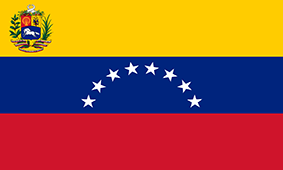
Rival board of PdV joint venture unit starts work

The new parallel board, approved by the opposition-controlled National Assembly in Caracas this week, is assigned to CVP, the state-owed PdV subsidiary that partners with foreign oil companies in joint ventures. Among the foreign companies that have joint ventures with PdV are US major Chevron, European firms Repsol, Total and Equinor, Russia's Rosneft and China's CNPC.
The board appointments are designed to establish an administrative framework to ensure the opposition is prepared to take political and economic control of Venezuela in the future.
Juan Guaido, head of the opposition-controlled National Assembly, named an "ad-hoc" board of PdV shortly after declaring his interim presidency in January, when it still seemed that the young leader would be able to spearhead a swift political transition in place of Venezuelan President Nicolas Maduro.
But Maduro and his inner circle have steadfastly resisted Western pressure, including US oil and financial sanctions, aimed at toppling him. The sanctions require Chevron and US oil services companies to leave Venezuela on 25 October, unless an existing waiver is renewed.
Guaido has no actual control over PdV, which remains in Maduro's hands. The company has lost around 80pc of its production capacity and all of its operational refining capacity in recent years. But the Guaido-led team has administrative control over PdV's US refining subsidiary Citgo, which is currently the target of multiple creditors.
In a generational shift, the five-member parallel CVP team includes Luis Eduardo Giusti Lugo, son of Luis Giusti, PdV chief executive in the 1990s who presided over the company's ill-fated "opening" to private-sector investment more than 25 years ago. Other CVP ad-hoc board members are Miguel Antonio Soto Quintana, Javier Alejandro Rodriguez Rubio, Javier Ricardo Linares Pena and Guillermo Andres Benzecry Izaquirre.
The objectives of the parallel CVP board are to protect CVP bank accounts and establish ties to PdV's partners, a senior opposition figure close to the board tells Argus.
The opposition has pledged to throw open the doors of Venezuela's oil industry in a post-Maduro era. The latest version of an oil reform bill drawn up by Venezuelan exiles is similar to Mexico's 2014 oil reform.
The new CVP board will meet today in Bogota in neighbouring Colombia, where many of Maduro's opponents often quietly gather. Colombia, in common with other large Latin American countries, the US, Canada and most of the EU, recognises Guaido rather than Maduro as Venezuela's president.
At least 1.5mn and as many as 3mn Venezuelans have fled to Colombia in recent years, part of a massive flight of migrants totalling an estimated 5mn.
Maduro scored a significant diplomatic victory yesterday with its controversial election to a seat on the UN Human Rights Council.


Trump weighs using $2 billion in CHIPS Act funding for critical minerals

Codelco cuts 2025 copper forecast after El Teniente mine collapse

Electra converts debt, launches $30M raise to jumpstart stalled cobalt refinery

Barrick’s Reko Diq in line for $410M ADB backing

Abcourt readies Sleeping Giant mill to pour first gold since 2014

Nevada army depot to serve as base for first US strategic minerals stockpile

SQM boosts lithium supply plans as prices flick higher

Viridis unveils 200Mt initial reserve for Brazil rare earth project

Tailings could meet much of US critical mineral demand – study

Kyrgyzstan kicks off underground gold mining at Kumtor

Kyrgyzstan kicks off underground gold mining at Kumtor

KoBold Metals granted lithium exploration rights in Congo

Freeport Indonesia to wrap up Gresik plant repairs by early September

Energy Fuels soars on Vulcan Elements partnership

Northern Dynasty sticks to proposal in battle to lift Pebble mine veto

Giustra-backed mining firm teams up with informal miners in Colombia

Critical Metals signs agreement to supply rare earth to US government-funded facility

China extends rare earth controls to imported material

Galan Lithium proceeds with $13M financing for Argentina project

Kyrgyzstan kicks off underground gold mining at Kumtor

Freeport Indonesia to wrap up Gresik plant repairs by early September

Energy Fuels soars on Vulcan Elements partnership

Northern Dynasty sticks to proposal in battle to lift Pebble mine veto

Giustra-backed mining firm teams up with informal miners in Colombia

Critical Metals signs agreement to supply rare earth to US government-funded facility

China extends rare earth controls to imported material

Galan Lithium proceeds with $13M financing for Argentina project

Silver price touches $39 as market weighs rate cut outlook

















